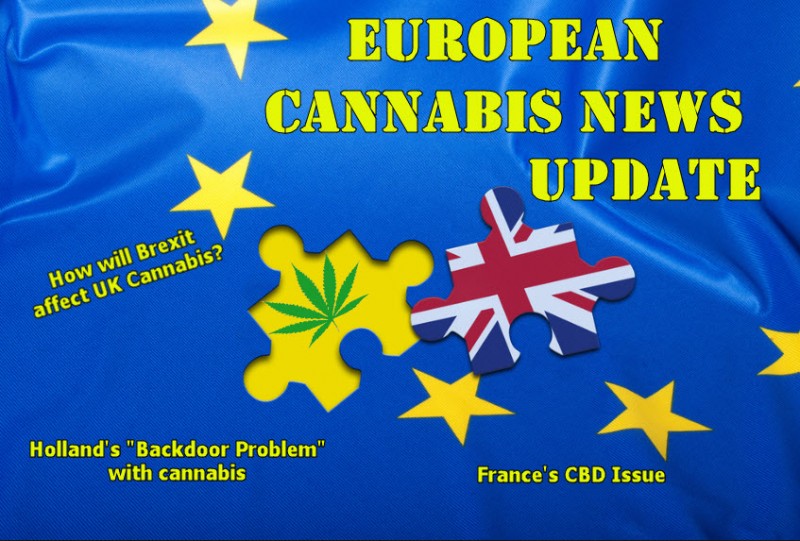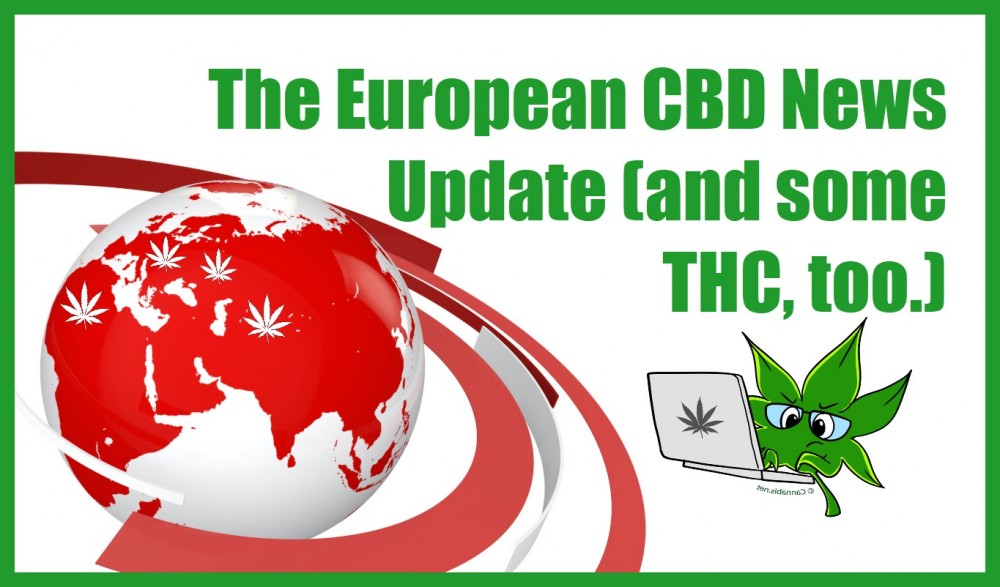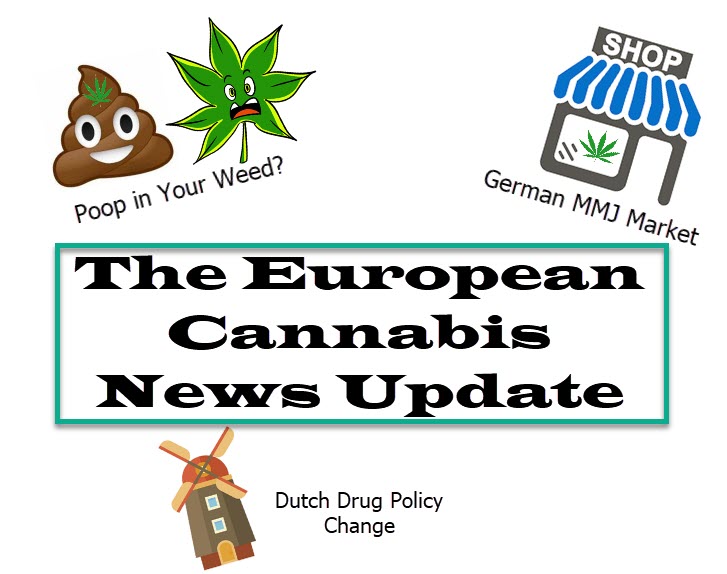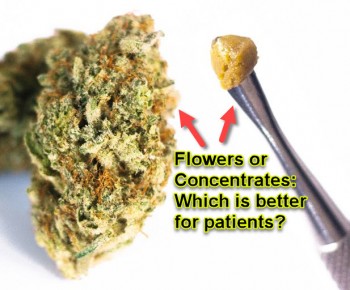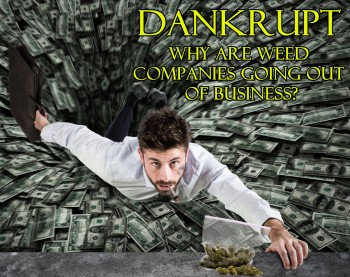Europe Cannabis News
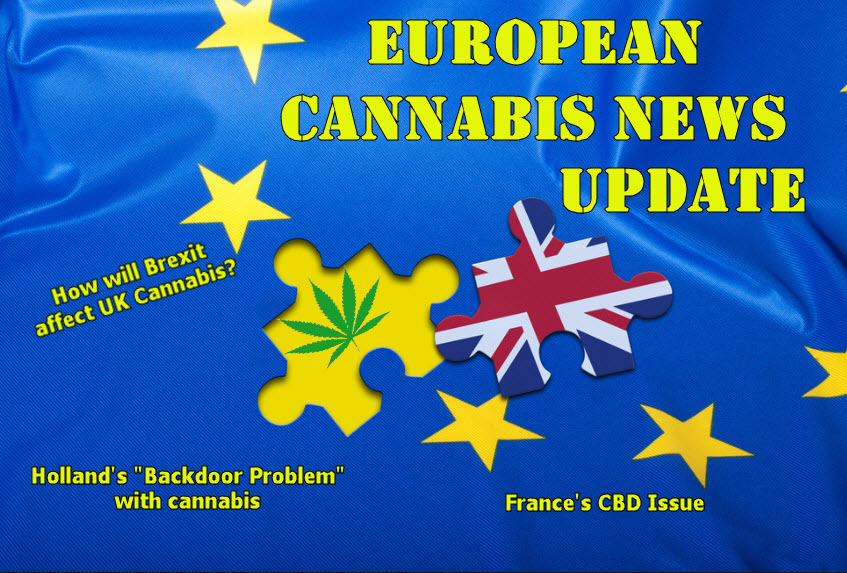
How Will Brexit Impact UK’s Legal Cannabis Industry?
Brexit is approaching quickly, so how is it going to affect the United Kingdom’s rapidly growing industry?
The most recent European Cannabis Report issued by Prohibition Partners sheds some light on the issue, stating that even if a no-deal Brexit occurs, the cannabis industry of the UK will not be affected.
According to Prohibition Partners’ Managing Director, Daragh Anglim: “Since the referendum vote, the uncertainty of the post-Brexit landscape has already had a notable impact on the UK economy, with Goldman Sachs warning this week that Brexit has cost the UK £600 million a week.”
“This includes businesses moving their operations abroad; factories stockpiling to reduce the risk of supply chain challenges; and sterling under constant pressure. With Europe facing ongoing uncertainty over when, how and even whether Brexit will happen, investors are undoubtedly nervous about the future.
As one of only a few sectors likely to emerge unscathed from the Brexit drama, perhaps it’s time to take a closer look at the enormous potential offered by Europe’s legal cannabis market.”
Additionally, the report also states that there is “significant pressure to improve access to medical cannabis from Britain’s patient groups and political community,” resulting in the UK Government thinking about aligning their medical cannabis laws with European regulations.
Holland Attempts To Solve The “Back Door Problem”
Despite The Netherlands’ reputation for being a stoner’s mecca, cannabis has never actually been legal though the authorities merely tolerated the fact that coffee shops sold cannabis. But they sourced their cannabis elsewhere, since they never had their own legal source of pot.
That’s because the Dutch system didn’t allow cannabis to be regulated then sold to coffee shops, so while they sold openly to people in the front door, they got their supply from the black market from the “back door”.
To rectify this, the government just announced that they will be going full steam ahead with a pilot program designed to regulate cannabis production for these world-famous coffee shops. The plan states that the government will be issuing 10 licenses to cultivators, who will be required to produce a minimum of 10 kinds of cannabis product while clearly labeling its THC content on the package. At least 6 and a maximum of 10 authorities will also be engaged in the experiment which will take four years. By the end of it, the next government will have the discretion of deciding if the Netherlands will participate in state-regulated production.
Though the pilot plan intends to completely eliminate the black market, it isn’t without criticism. “Coffeeshops in the municipalities which are taking part in the experiment can only sell legally-produced hemp products and growers can only sell to those shops,” it reads. “This means the entire chain will be closed.”
Local authorities in Amsterdam and Rotterdam, the biggest cities in the Netherlands, criticized the plan saying that it’s too strict and isn’t feasible. Despite that, the coalition is moving forward and says that the final decision on which of the local authorities will participate will be announced at the end of the year.
Legal Status Of CBD Hazy In France
While CBD has become mainstream in other parts of the world, France, which has some of the strictest drug laws in Europe, still cracks down on CBD manufacturers.
Despite that, shops around the country continue selling CBD products because it’s just so profitable. Some of the most popular studies of CBD prove its efficacy in treating epilepsy, anxiety, and depression, so manufacturers are using these health claims on their products.
However, this is not allowed in France.
Though sellers are allowed to say that CBD has relaxing properties, in the same way that tea can help you unwind, they are forbidden from advocating its use for treating certain ailments. French law is still extremely hazy about CBD because they were not expecting it to become so popular.
Hemp is only legal if it’s grown for industrial purpose, even though France is the biggest hemp producer in the European Union. Industrial hemp contains significantly less THC than cannabis; current French law states that cannabis plants that are grown in the country should have a maximum of 0.2% THC. The average THC content in cannabis is 14%.
Meanwhile, it’s Switzerland that is supplying the CBD being sold in shops around France. This is why many argue that CBD should be legal because it isn’t grown in France and has less of the required legal limit when it comes to THC.
MORE EURO CANNABIS NEWS BELOW...
CANNABIS NEWS FOR EUROPE TODAY, CLICK HERE.
